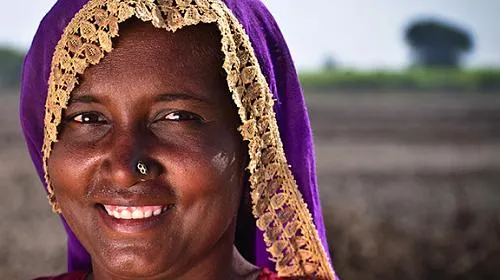NEW YORK (March 18, 2013) – The annual session of the United Nations Commission on the Status of Women (UN CSW) ended last week with an agreement by member states to strengthen global efforts to prevent and respond to a wide spectrum of violence against women and girls.
After the collapse of last year’s CSW negotiations, activists cheered as the agreement was finalized. But they raised concerns about schisms that still exist among governments concerning access to reproductive rights and health, among other pressing issues related to gender-based violence.
“It has been sad to see some governments at the CSW attempting to unravel longstanding international commitments to protecting women and girls,” said Vivian Thabet,Women’s Rights Program Director at CARE Egypt, who attended the CSW session. “Women’s rights have become a kind of bartering chip to be traded away for political agendas that have little or nothing to do with the interests and well-being of women and girls.”
The CSW “Agreed Conclusions” were reached after days of fevered negotiations, running late into the night. The final document highlights a number of important commitments to strengthening laws and policies, as well as services and other measures to prevent and respond to violence ranging from human trafficking to sexual harassmen to harmful customary practices and violence between intimate partners.
Particular controversy arose during the talks in relation to issues of sexual and reproductive health, early and forced marriage, violence against women in situations of political instability, and the notion that state sovereignty might be invoked to unravel already-agreed international laws and norms on women’s rights.
Despite weaknesses in the outcome, CARE and its local partner organisations applauded the emphasis on addressing structural causes of gender violence, such as through education and the economic empowerment of women and girls. Other important and hard-won components of the agreement include support for the protection of women’s rights defenders and condemnation for the use of social justifications of any forms of violence against women and girls.
CARE supported a delegation of 12 women’s rights activists from across the Middle East, Asia and Africa to attend and bring their community-level expertise into the global talks.
One of the delegation, Anastasia Olembo, Gender Advisor at CARE Uganda, said talks may have ended but the work has only just begun.
“What was agreed at UN headquarters in New York now needs to translate into robust action against violence on the ground,” Olembo said. “Thousands of women’s rights defenders around the world have followed the talks from afar. Controversy stirred by the debates over issues like gender equality and traditional harmful practices means that they need our support more than ever.”
Thabet, of CARE Egypt, said that in Egypt and elsewhere across the Middle East, they have witnessed real and sustained progress in transforming attitudes to practices like female genital mutilation, domestic violenc and early and forced marriage at the local level. She emphasized that traditional and religious leaders have rallied to the cause of ending harmful customs, while safeguarding local institutions.
“We hope that the CSW commitments can now help to scale-up these efforts at the national level,” Thabet said.
Media Contacts:
Washington, D.C.: Stephanie Chen, CARE, schen@care.org, +1.202.595.2824, +1.404.819.6638
Geneva: Howard Mollett, CARE International, mollett@careinternational.org, +44795657589

